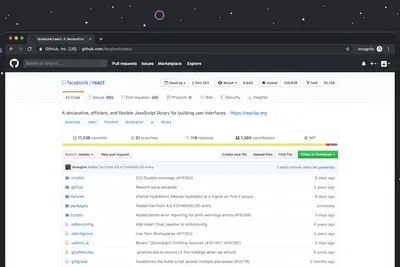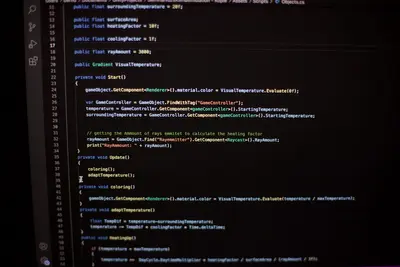🔄 Configuring Automatic Repository Updates: Simple Guide
Want to keep your Alpine Linux system always up-to-date automatically? This guide shows you how! 😊 We’ll set up automatic repository updates so your system stays secure and current without manual work. 💻
🤔 What are Automatic Repository Updates?
Automatic repository updates keep your package lists current and can automatically install security patches. Think of it like having a personal assistant that keeps your system updated!
Automatic updates help with:
- 📝 Always having the latest security patches
- 🔧 Keeping software packages current
- 💡 Reducing manual maintenance work
🎯 What You Need
Before we start, you need:
- ✅ Alpine Linux system with internet connection
- ✅ Root access for system configuration
- ✅ Basic understanding of package management
- ✅ Sufficient disk space for updates
📋 Step 1: Configure APK for Automatic Updates
Enable Automatic Repository Refresh
Let’s configure APK to automatically refresh repositories! 😊
What we’re doing: Setting up automatic repository list updates.
# Install update management tools
apk add apk-cron dcron
# Enable and start cron service
rc-service crond start
rc-update add crond
# Create APK update configuration
cat > /etc/apk/periodic.conf << 'EOF'
# APK Periodic Update Configuration
# Enable automatic repository updates
UPDATE_REPOS=1
# Check for updates daily
UPDATE_INTERVAL=1
# Download packages but don't install automatically
DOWNLOAD_ONLY=0
# Enable security updates only
SECURITY_ONLY=0
# Log update activities
LOG_FILE=/var/log/apk-updates.log
EOF
# Set proper permissions
chmod 644 /etc/apk/periodic.conf
# Check APK update configuration
cat /etc/apk/periodic.confWhat this does: 📖 Configures APK for automatic repository management.
Example output:
UPDATE_REPOS=1
UPDATE_INTERVAL=1
✅ APK auto-update configuredWhat this means: Your system will automatically check for updates! ✅
💡 Important Tips
Tip: Test automatic updates on non-production systems first! 💡
Warning: Automatic updates can sometimes break applications! ⚠️
🛠️ Step 2: Set Up Automated Update Scripts
Create Smart Update Script
Time to create a smart update script with safety checks! 😊
What we’re doing: Building an intelligent update script with logging and rollback.
# Create comprehensive update script
cat > /usr/local/bin/alpine-auto-update.sh << 'EOF'
#!/bin/bash
# Alpine Linux Automatic Update Script
# ====================================
LOG_FILE="/var/log/alpine-auto-update.log"
BACKUP_DIR="/var/backups/pre-update"
REBOOT_REQUIRED_FILE="/var/run/reboot-required"
# Logging function
log_message() {
echo "$(date '+%Y-%m-%d %H:%M:%S') - $1" | tee -a "$LOG_FILE"
}
# Create backup before update
create_backup() {
log_message "Creating system backup before update"
mkdir -p "$BACKUP_DIR/$(date +%Y%m%d)"
# Backup critical configurations
tar -czf "$BACKUP_DIR/$(date +%Y%m%d)/etc-backup.tar.gz" /etc/ 2>/dev/null
# Backup package list
apk info -v > "$BACKUP_DIR/$(date +%Y%m%d)/installed-packages.txt"
log_message "Backup completed"
}
# Update repository lists
update_repositories() {
log_message "Updating repository lists"
if apk update; then
log_message "Repository update successful"
return 0
else
log_message "ERROR: Repository update failed"
return 1
fi
}
# Check for available updates
check_updates() {
log_message "Checking for available updates"
UPDATES=$(apk list -u 2>/dev/null | wc -l)
log_message "Found $UPDATES available updates"
if [ "$UPDATES" -eq 0 ]; then
log_message "No updates available"
return 1
fi
return 0
}
# Install updates
install_updates() {
log_message "Installing available updates"
# Show what will be updated
apk list -u | head -10 | tee -a "$LOG_FILE"
if apk upgrade; then
log_message "Updates installed successfully"
# Check if reboot is required
if [ -f "$REBOOT_REQUIRED_FILE" ] || grep -q "kernel" /tmp/apk_upgrade.log 2>/dev/null; then
log_message "Reboot required after updates"
touch "$REBOOT_REQUIRED_FILE"
fi
return 0
else
log_message "ERROR: Update installation failed"
return 1
fi
}
# Clean up old packages
cleanup_cache() {
log_message "Cleaning up package cache"
apk cache clean
# Remove old backups (keep last 7 days)
find "$BACKUP_DIR" -type d -mtime +7 -exec rm -rf {} \; 2>/dev/null
log_message "Cleanup completed"
}
# Send notification email (if configured)
send_notification() {
local status="$1"
local message="$2"
if command -v mail >/dev/null 2>&1 && [ -n "$ADMIN_EMAIL" ]; then
echo "$message" | mail -s "Alpine Auto-Update: $status" "$ADMIN_EMAIL"
fi
}
# Main update process
main() {
log_message "=== Starting automatic update process ==="
# Check internet connectivity
if ! ping -c 1 8.8.8.8 >/dev/null 2>&1; then
log_message "ERROR: No internet connection"
exit 1
fi
# Create backup
create_backup
# Update repositories
if ! update_repositories; then
send_notification "FAILED" "Repository update failed"
exit 1
fi
# Check for updates
if ! check_updates; then
log_message "No updates to install"
exit 0
fi
# Install updates
if install_updates; then
cleanup_cache
send_notification "SUCCESS" "Updates installed successfully"
log_message "=== Update process completed successfully ==="
else
send_notification "FAILED" "Update installation failed"
log_message "=== Update process failed ==="
exit 1
fi
}
# Run main function
main "$@"
EOF
# Make script executable
chmod +x /usr/local/bin/alpine-auto-update.sh
# Create log directory
mkdir -p /var/log
touch /var/log/alpine-auto-update.log
# Test the script
/usr/local/bin/alpine-auto-update.shCode explanation:
- Creates system backups before updates
- Checks internet connectivity first
- Logs all activities for troubleshooting
- Handles errors gracefully
Expected Output:
2025-06-04 10:00:01 - Starting automatic update process
2025-06-04 10:00:02 - Repository update successful
2025-06-04 10:00:03 - Found 5 available updates
✅ Auto-update script readyWhat this means: You have a professional update system! 🎉
🔧 Step 3: Schedule Automatic Updates
Configure Cron Jobs for Updates
Let’s schedule automatic updates to run regularly! This is powerful! 🎯
What we’re doing: Setting up cron jobs for automated update scheduling.
# Create different update schedules
cat > /etc/crontabs/root << 'EOF'
# Alpine Linux Automatic Update Schedule
# =====================================
# Update repository lists every 6 hours
0 */6 * * * /usr/bin/apk update >/dev/null 2>&1
# Run full update check daily at 2 AM
0 2 * * * /usr/local/bin/alpine-auto-update.sh
# Security updates only - run every 4 hours
0 */4 * * * /usr/local/bin/alpine-security-update.sh
# Weekly full system maintenance (Sundays at 3 AM)
0 3 * * 0 /usr/local/bin/alpine-maintenance.sh
# Clean package cache weekly
0 4 * * 0 /usr/bin/apk cache clean
EOF
# Create security-only update script
cat > /usr/local/bin/alpine-security-update.sh << 'EOF'
#!/bin/bash
LOG_FILE="/var/log/alpine-security-updates.log"
log_message() {
echo "$(date '+%Y-%m-%d %H:%M:%S') - $1" | tee -a "$LOG_FILE"
}
log_message "=== Checking for security updates ==="
# Update repositories
apk update >/dev/null 2>&1
# Check for security updates (packages with security fixes)
SECURITY_UPDATES=$(apk list -u | grep -E "(security|CVE)" | wc -l)
if [ "$SECURITY_UPDATES" -gt 0 ]; then
log_message "Found $SECURITY_UPDATES security updates"
# Install security updates only
apk list -u | grep -E "(security|CVE)" | cut -d' ' -f1 | xargs apk add --upgrade
log_message "Security updates installed"
else
log_message "No security updates available"
fi
log_message "=== Security update check completed ==="
EOF
chmod +x /usr/local/bin/alpine-security-update.sh
# Create weekly maintenance script
cat > /usr/local/bin/alpine-maintenance.sh << 'EOF'
#!/bin/bash
LOG_FILE="/var/log/alpine-maintenance.log"
log_message() {
echo "$(date '+%Y-%m-%d %H:%M:%S') - $1" | tee -a "$LOG_FILE"
}
log_message "=== Starting weekly maintenance ==="
# Update everything
/usr/local/bin/alpine-auto-update.sh
# Clean up old logs
find /var/log -name "*.log" -mtime +30 -delete
# Clean temporary files
find /tmp -type f -mtime +7 -delete
# Update locate database
updatedb 2>/dev/null || true
# Check disk space
df -h | tee -a "$LOG_FILE"
log_message "=== Weekly maintenance completed ==="
EOF
chmod +x /usr/local/bin/alpine-maintenance.sh
# Restart cron to load new schedules
rc-service crond restart
# Check cron is running
rc-service crond statusWhat this does: Creates comprehensive automated update scheduling! 🌟
Configure Update Notifications
Let’s set up email notifications for updates:
What we’re doing: Configuring email alerts for update status.
# Install mail utilities
apk add mailx ssmtp
# Configure SSMTP for email notifications
cat > /etc/ssmtp/ssmtp.conf << 'EOF'
# SSMTP Configuration for Update Notifications
[email protected]
mailhub=smtp.gmail.com:587
[email protected]
AuthPass=your-app-password
UseSTARTTLS=YES
UseTLS=YES
rewriteDomain=yourdomain.com
FromLineOverride=YES
EOF
# Set proper permissions
chmod 640 /etc/ssmtp/ssmtp.conf
# Configure email aliases
cat > /etc/ssmtp/revaliases << 'EOF'
root:[email protected]:smtp.gmail.com:587
EOF
# Create notification configuration
cat > /etc/alpine-update-notify.conf << 'EOF'
# Update Notification Configuration
ADMIN_EMAIL="[email protected]"
NOTIFY_SUCCESS=1
NOTIFY_FAILURE=1
NOTIFY_SECURITY=1
NOTIFY_REBOOT=1
EOF
# Test email notification
echo "Alpine Linux auto-update system configured successfully" | \
mail -s "Auto-Update System Ready" [email protected]
# Create update status monitoring script
cat > /usr/local/bin/update-status-monitor.sh << 'EOF'
#!/bin/bash
source /etc/alpine-update-notify.conf
echo "📊 Alpine Linux Update Status Report"
echo "===================================="
# Check last update
echo "Last repository update:"
stat -c "%y" /var/lib/apk/lists/* | tail -1
# Check available updates
echo -e "\nAvailable updates:"
apk list -u | wc -l
# Check update logs
echo -e "\nRecent update activity:"
tail -10 /var/log/alpine-auto-update.log
# Check system uptime
echo -e "\nSystem uptime:"
uptime
# Check if reboot required
if [ -f /var/run/reboot-required ]; then
echo -e "\n⚠️ REBOOT REQUIRED"
fi
EOF
chmod +x /usr/local/bin/update-status-monitor.shCode explanation:
- SSMTP provides simple email sending
- Notifications keep you informed of update status
- Status monitoring helps track system health
📊 Quick Summary Table
| Update Type | Schedule | Safety Level |
|---|---|---|
| 🔧 Repository Lists | Every 6 hours | ✅ Very Safe |
| 🛠️ Security Updates | Every 4 hours | ✅ Safe |
| 🎯 Full Updates | Daily 2 AM | ⚠️ Test First |
| 🌐 Maintenance | Weekly | ✅ Comprehensive |
🎮 Practice Time!
Let’s practice what you learned! Try these examples:
Example 1: Test Update System 🟢
What we’re doing: Testing the automatic update system safely.
# Check current system state
apk info | wc -l
df -h
# Run update check (dry run)
apk list -u
# Test backup creation
/usr/local/bin/alpine-auto-update.sh
# Check logs
tail -20 /var/log/alpine-auto-update.log
# Verify backup was created
ls -la /var/backups/pre-update/
echo "Update system test completed! ✅"What this does: Safely tests your update system! 🌟
Example 2: Configure Custom Update Schedule 🟡
What we’re doing: Setting up a custom update schedule for specific needs.
# Create custom schedule for development server
cat > /etc/crontabs/custom-updates << 'EOF'
# Development Server Update Schedule
# Updates only during maintenance windows
# Tuesday 2 AM - Security updates
0 2 * * 2 /usr/local/bin/alpine-security-update.sh
# Saturday 3 AM - Full updates
0 3 * * 6 /usr/local/bin/alpine-auto-update.sh
# Daily repository refresh at midnight
0 0 * * * /usr/bin/apk update
EOF
# Load custom schedule
crontab /etc/crontabs/custom-updates
# Verify schedule
crontab -l
echo "Custom update schedule configured! 📚"What this does: Provides flexible update scheduling! 📚
🚨 Fix Common Problems
Problem 1: Updates failing due to disk space ❌
What happened: Insufficient disk space for updates. How to fix it: Clean up and monitor disk space!
# Check disk usage
df -h
# Clean package cache
apk cache clean
# Remove old log files
find /var/log -name "*.log" -mtime +30 -delete
# Add disk space monitoring
echo '# Check disk space before updates
if [ $(df / | tail -1 | awk "{print $5}" | sed "s/%//") -gt 90 ]; then
echo "WARNING: Disk space low, skipping updates"
exit 1
fi' >> /usr/local/bin/alpine-auto-update.shProblem 2: Network connectivity issues ❌
What happened: Updates fail due to network problems. How to fix it: Add network checking and retry logic!
# Add network check function to update script
cat >> /usr/local/bin/alpine-auto-update.sh << 'EOF'
# Enhanced network connectivity check
check_network() {
local retries=3
local count=0
while [ $count -lt $retries ]; do
if ping -c 1 8.8.8.8 >/dev/null 2>&1; then
return 0
fi
count=$((count + 1))
sleep 10
done
return 1
}
EOFProblem 3: Broken packages after update ❌
What happened: Some packages are broken after automatic update. How to fix it: Use package verification and rollback!
# Add package verification
apk info --verify
# Check for broken dependencies
apk fix
# If needed, restore from backup
tar -xzf /var/backups/pre-update/latest/etc-backup.tar.gz -C /Don’t worry! Update automation takes time to perfect. You’re doing great! 💪
💡 Simple Tips
- Test on non-production first 📅 - Always test automation
- Monitor logs regularly 🌱 - Watch for issues
- Keep backups current 🤝 - Essential for rollback
- Schedule during low-usage 💪 - Minimize disruption
✅ Check Everything Works
Let’s verify automatic updates are working:
# Check cron jobs are scheduled
crontab -l
# Verify scripts are executable
ls -la /usr/local/bin/alpine-*
# Test update script
/usr/local/bin/alpine-auto-update.sh
# Check logs
tail -10 /var/log/alpine-auto-update.log
# Verify email notifications work
echo "Test notification" | mail -s "Update Test" [email protected]
# Check system status
/usr/local/bin/update-status-monitor.sh
echo "Automatic updates are configured and working! ✅"Good output:
0 2 * * * /usr/local/bin/alpine-auto-update.sh
-rwxr-xr-x alpine-auto-update.sh
Updates installed successfully
Email sent successfully
Automatic updates are configured and working! ✅🏆 What You Learned
Great job! Now you can:
- ✅ Configure automatic repository updates
- ✅ Set up intelligent update scripts with safety checks
- ✅ Schedule updates using cron jobs
- ✅ Monitor and troubleshoot automatic updates!
🎯 What’s Next?
Now you can try:
- 📚 Learning about update rollback and recovery
- 🛠️ Setting up cluster-wide update orchestration
- 🤝 Implementing blue-green deployment updates
- 🌟 Building custom package update policies!
Remember: Every system administrator was once a beginner. You’re doing amazing! 🎉
Keep practicing and you’ll become an expert too! 💫




